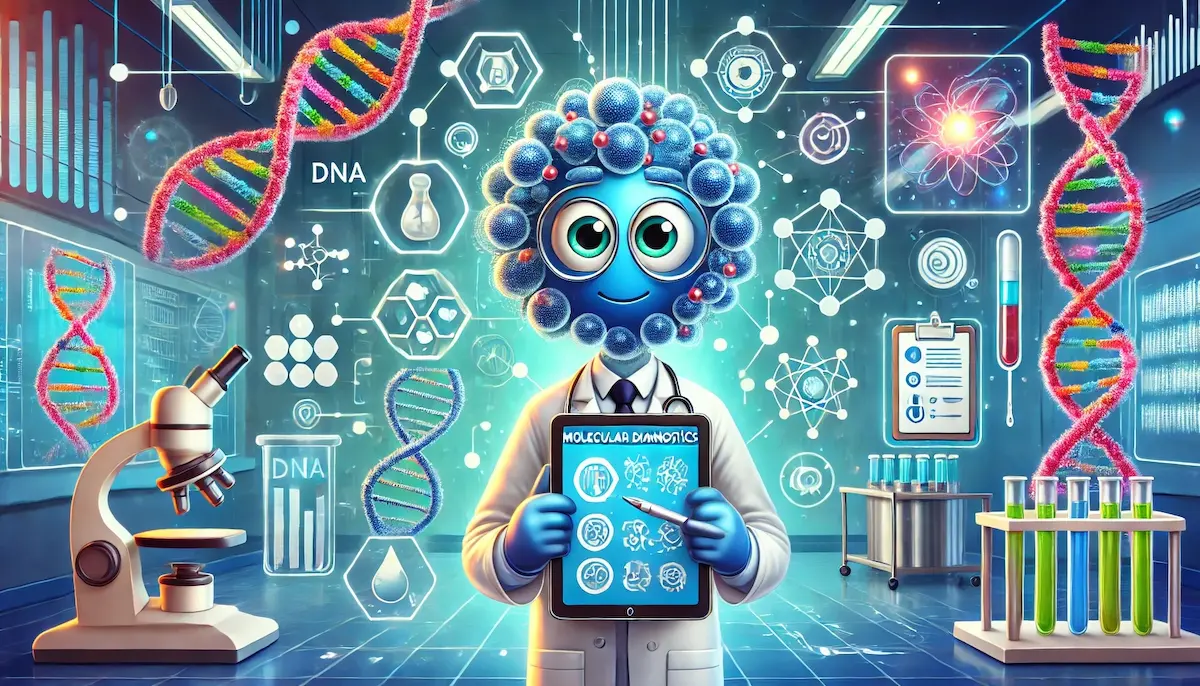Molecular diagnostics is a rapidly advancing field that plays a crucial role in modern healthcare. By analyzing biological markers in the genome and proteome, molecular diagnostics provides precise information about diseases at the molecular level. This enables early detection, accurate diagnosis, personalized treatment plans, and better disease management.
What is Molecular Diagnostics?
Molecular diagnostics involves the use of laboratory techniques to analyze the genetic material (DNA, RNA) and proteins of an organism. These techniques can identify genetic mutations, variations, and the presence of pathogens, providing a detailed understanding of the underlying causes of diseases.
Key Techniques in Molecular Diagnostics
Polymerase Chain Reaction (PCR)
PCR is a fundamental technique in molecular diagnostics. It amplifies small amounts of DNA or RNA, making it possible to detect and analyze genetic material even when it is present in very low quantities. PCR is widely used in infectious disease diagnosis, genetic testing, and cancer diagnostics.
Next-Generation Sequencing (NGS)
NGS is a high-throughput method that allows for the rapid sequencing of large sections of DNA or entire genomes. This technique provides comprehensive genetic information, enabling the identification of mutations, genetic disorders, and biomarkers for various diseases. NGS is instrumental in personalized medicine and genomic research.
Fluorescence In Situ Hybridization (FISH)
FISH is a technique used to detect and localize specific DNA sequences on chromosomes. It uses fluorescent probes that bind to specific parts of the genome, allowing for the visualization of genetic abnormalities, such as chromosomal translocations and gene amplifications. FISH is commonly used in cancer diagnostics and prenatal testing.
Microarrays
Microarrays are tools that allow the simultaneous analysis of thousands of genes. They consist of small glass slides with many tiny spots, each containing a specific DNA sequence. By comparing the patterns of gene expression in different samples, researchers can identify genes associated with particular diseases.
Quantitative PCR (qPCR)
qPCR, also known as real-time PCR, not only amplifies DNA but also quantifies it in real-time. This technique is highly sensitive and specific, making it ideal for measuring gene expression levels, detecting viral loads, and diagnosing infectious diseases.
Applications of Molecular Diagnostics
Infectious Diseases
Molecular diagnostics plays a vital role in the detection and management of infectious diseases. Techniques like PCR and NGS can quickly identify pathogens such as bacteria, viruses, and fungi, enabling timely and appropriate treatment. Molecular tests were pivotal in the rapid diagnosis of COVID-19, demonstrating their importance in managing pandemics.
Cancer
In oncology, molecular diagnostics helps in the early detection and classification of cancers. By identifying specific genetic mutations and alterations, molecular tests can determine the type and aggressiveness of cancer, guiding treatment decisions and improving patient outcomes. Techniques like liquid biopsy, which detects cancer cells or DNA fragments in the blood, are emerging as non-invasive diagnostic tools.
Genetic Disorders
Molecular diagnostics enables the identification of genetic disorders by detecting mutations and alterations in DNA. Prenatal testing, newborn screening, and carrier testing are some applications that help in diagnosing conditions like cystic fibrosis, Down syndrome, and sickle cell anemia. Early diagnosis allows for better management and treatment options.
Pharmacogenomics
Pharmacogenomics studies how an individual’s genetic makeup affects their response to drugs. Molecular diagnostics can identify genetic variations that influence drug metabolism and efficacy, helping to tailor medications and dosages to each patient’s genetic profile. This personalized approach enhances treatment effectiveness and reduces the risk of adverse reactions.
Personalized Medicine
The integration of molecular diagnostics into personalized medicine allows for more precise and individualized treatment plans. By understanding the genetic and molecular basis of a patient’s disease, healthcare providers can select the most appropriate therapies, monitor treatment response, and adjust strategies as needed.
Challenges and Future Prospects
Data Interpretation
One of the challenges in molecular diagnostics is the interpretation of complex genetic data. Advanced bioinformatics tools and expertise are required to analyze and translate this data into actionable clinical information.
Cost and Accessibility
The high cost of molecular diagnostic tests can limit accessibility, especially in low-resource settings. Efforts are being made to reduce costs and develop affordable testing solutions to make these advanced diagnostics more widely available.
Ethical Considerations
The use of genetic information in diagnostics raises ethical concerns, including issues of privacy, consent, and potential genetic discrimination. Establishing ethical guidelines and robust regulations is essential to protect patients’ rights and ensure responsible use of molecular diagnostics.
The Future of Molecular Diagnostics
The future of molecular diagnostics is bright, with ongoing advancements in technology and research. Innovations in genomics, proteomics, and bioinformatics are expected to further enhance the precision and scope of molecular diagnostics, making personalized medicine a reality for more patients. As these technologies become more accessible, molecular diagnostics will continue to transform healthcare, leading to earlier diagnoses, more effective treatments, and better patient outcomes.
Blockfine thanks you for reading and hopes you found this article helpful.
